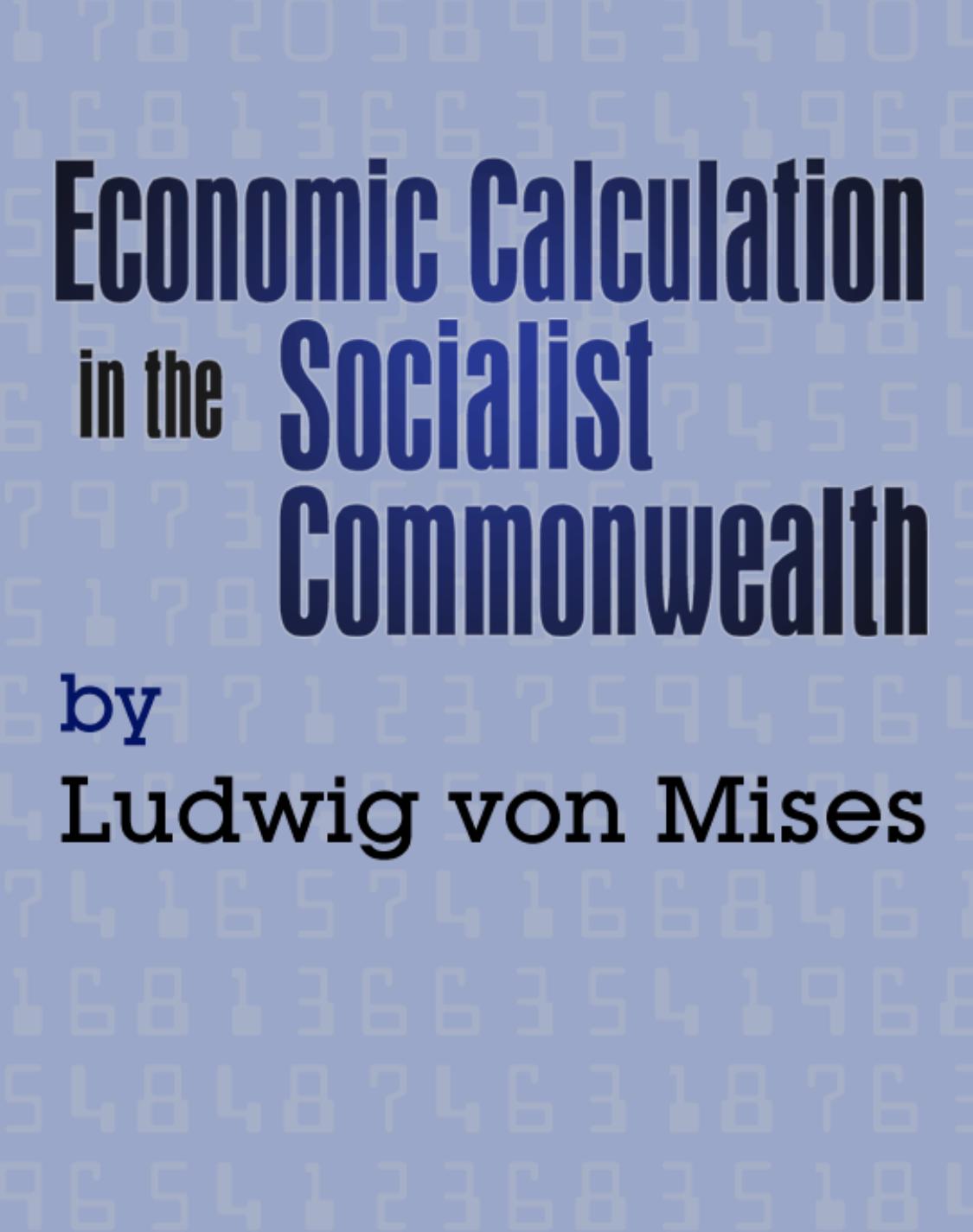Economic Calculation in the Socialist Commonwealth by Ludwig von Mises

Author:Ludwig von Mises [Mises, Ludwig von]
Language: eng
Format: epub, pdf
Tags: Non-Fiction, Politics, LvMI, Austrian Economics
ISBN: 9781329926820
Google: 786yCwAAQBAJ
Amazon: B004GKN7W8
Barnesnoble: B004GKN7W8
Goodreads: 1714576
Publisher: Lulu.com
Published: 1920-01-01T00:00:00+00:00
5. The Most Recent Socialist Doctrines and the Problem of Economic Calculation
Since recent events helped socialist parties to obtain power in Russia, Hungary, Germany and Austria, and have thus made the execution of a socialist nationalization program a topical issue,17 Marxist writers have themselves begun to deal more closely with the problems of the regulation of the socialist commonwealth. But even now they still cautiously avoid the crucial question, leaving it to be tackled by the despised “Utopians.” They themselves prefer to confine their attention to what is to be done in the immediate future; they are forever drawing up programs of the path to Socialism and not of Socialism itself. The only possible conclusion from all these writings is that they are not even conscious of the larger problem of economic calculation in a socialist society.
To Otto Bauer the nationalization of the banks appears the final and decisive step in the carrying through of the socialist nationalization program. If all banks are nationalized and amalgamated into a single central bank, then its administrative board becomes “the supreme economic authority, the chief administrative organ of the whole economy. Only by nationalization of the banks does society obtain the power to regulate its labor according to a plan, and to distribute its resources rationally among the various branches of production, so as to adapt them to the nation’s needs.”18 Bauer is not discussing the monetary arrangements which will prevail in the socialist commonwealth after the completion of the nationalization of the banks. Like other Marxists he is trying to show how simply and obviously the future socialist order of society will evolve from the conditions prevailing in a developed capitalist economy. “It suffices to transfer to the nation’s representatives the power now exercised by bank shareholders through the Administrative Boards they elect,”19 in order to socialize the banks and thus to lay the last brick on the edifice of socialism. Bauer leaves his readers completely ignorant of the fact that the nature of the banks is entirely changed in the process of nationalization and amalgamation into one central bank. Once the banks merge into a single bank, their essence is wholly transformed; they are then in a position to issue credit without any limitation. 20 In this fashion the monetary system as we know it today disappears of itself. When in addition the single central bank is nationalized in a society, which is otherwise already completely socialized, market dealings disappear and all exchange transactions are abolished. At the same time the Bank ceases to be a bank, its specific functions are extinguished, for there is no longer any place for it in such a society. It may be that the name “Bank” is retained, that the Supreme Economic Council of the socialist community is called the Board of Directors of the Bank, and that they hold their meetings in a building formerly occupied by a bank. But it is no longer a bank, it fulfils none of those functions which a
Download
Economic Calculation in the Socialist Commonwealth by Ludwig von Mises.pdf
This site does not store any files on its server. We only index and link to content provided by other sites. Please contact the content providers to delete copyright contents if any and email us, we'll remove relevant links or contents immediately.
International Integration of the Brazilian Economy by Elias C. Grivoyannis(57322)
The Radium Girls by Kate Moore(10907)
Turbulence by E. J. Noyes(7039)
Nudge - Improving Decisions about Health, Wealth, and Happiness by Thaler Sunstein(6633)
The Black Swan by Nassim Nicholas Taleb(6190)
Pioneering Portfolio Management by David F. Swensen(5606)
Rich Dad Poor Dad by Robert T. Kiyosaki(5149)
Zero to One by Peter Thiel(4824)
Man-made Catastrophes and Risk Information Concealment by Dmitry Chernov & Didier Sornette(4735)
Secrecy World by Jake Bernstein(3782)
Millionaire: The Philanderer, Gambler, and Duelist Who Invented Modern Finance by Janet Gleeson(3569)
Skin in the Game by Nassim Nicholas Taleb(3460)
The Age of Surveillance Capitalism by Shoshana Zuboff(3422)
The Money Culture by Michael Lewis(3284)
Skin in the Game: Hidden Asymmetries in Daily Life by Nassim Nicholas Taleb(3264)
Bullshit Jobs by David Graeber(3179)
The Dhandho Investor by Mohnish Pabrai(3168)
The Wisdom of Finance by Mihir Desai(3078)
Blockchain Basics by Daniel Drescher(2890)
